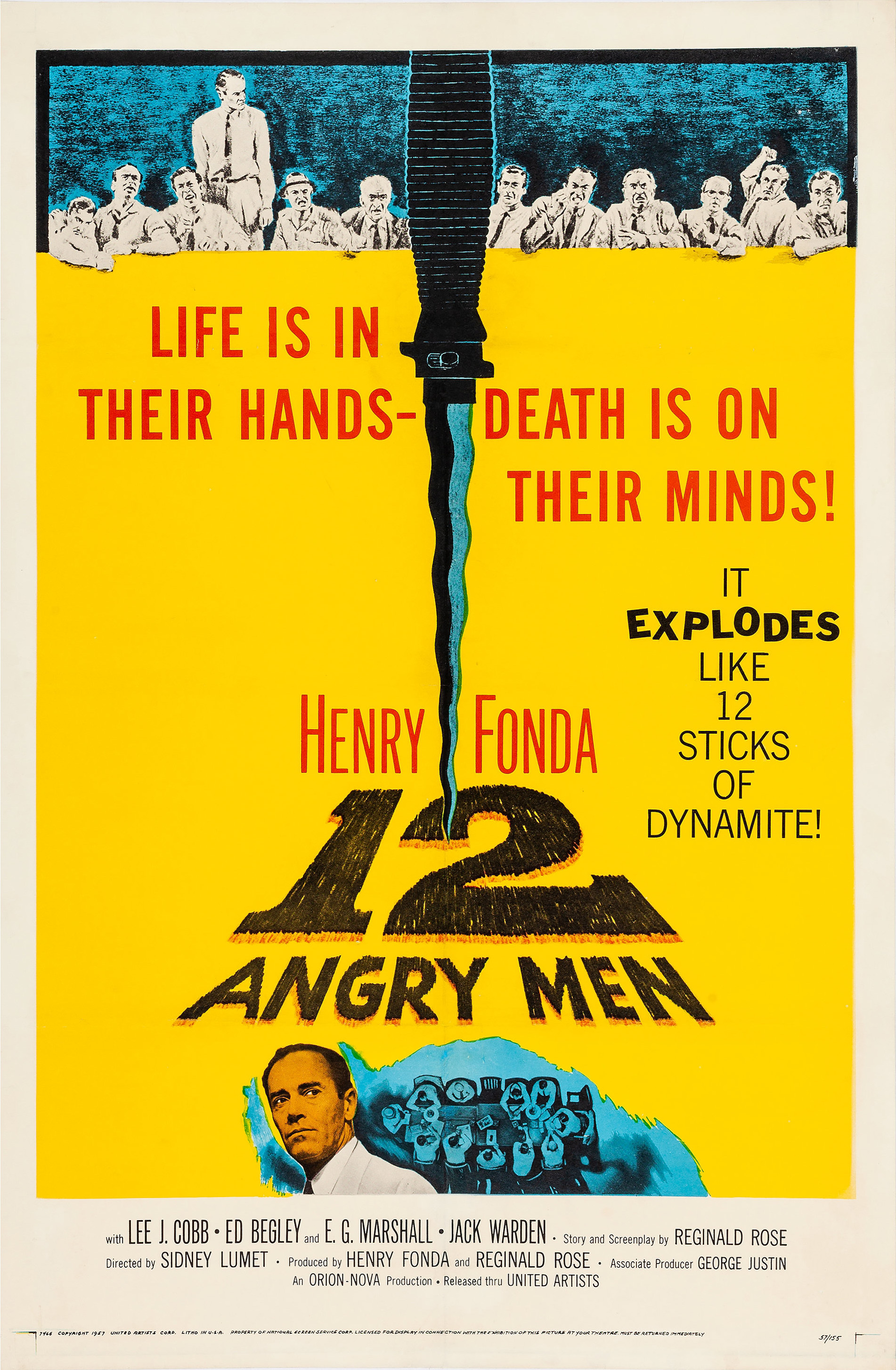While modern movies are moving towards becoming incredible showpieces, there’s just something iconic about contemporary examples from the past. One of the most brilliant examples of such a film is Sidney Lumet’s 1957 movie, 12 Angry Men. It also features one of the all-time most excellent casts, but that’s not the only reason for the magic. The movie’s set in a single location setting, where twelve jurors are in a separate room deliberating over a murder case. Their debate raises some high points and lessons that one can benefit from even today.
The movie’s onset begins with the judge explaining that a man is accused of murder, and the jurors must decide on his fate. It questions the fundamental morality of humans as a society when facing the task of coming to a verdict that will determine someone’s life. The film’s tagline references this same fact, stating that ‘Life is in their hands, death is on their minds.

Lessons that we learned
From the very start of the movie, we’re given some essential lessons, and the film highlights several issues that are relevant events today. In 12 angry men, one of the most critical lessons we learn is prejudice. Out of the 12 jurors, only one of the jurors stands on the not guilty side, while the others immediately vote as guilty. They judge the individual on his background and seem reluctant to discuss the case. While the juror eight is not convinced of the accused’s innocence, his wish is to discuss the outcome of the case beyond a reasonable doubt. Which is something that the other eleven are not all that keen to do.
Prejudice
The first important issue the movie highlights is the existence of discrimination in the judicial system. Even though these jurors are meant to uphold the law justly and fairly, they are influenced by bias to a certain degree. When voting on whether the individual is guilty or not, the jurors that raise their hand for criminal the earliest, hold the most amount of prejudice. While the others that follow slightly reluctantly, showcase lower amounts of discrimination, but there’s an evident herd mentality.
You can see this prejudice from the argument Ed Begley’s character makes. His juror refers to the boy as slum kid, relaying the idea that there’s something about kids from the slums that belong to specific ethnic groups that make them behave violently. Additionally, another juror played brilliantly by Lee J. Cobb agrees with the assumption about the kid being from the slum. He also adds his prejudice as he believes that kids these days have no respect and can do anything.

Individual Justice
While each juror wants to uphold justice for the crime, the progression in the narrative shows an exciting development. Henry Fonda’s Juror, who was the original lone vote for not guilty, presents evidence that dissolves testimony made in the courtroom. After this development, each juror showcases their definition of justice. These justice standards resonate with each individual’s desires, which is not the point of the justice system. Crucially, juror eight reminds all the other jurors that their wishes are irrelevant; they aren’t here to achieve what they desire; they hold another person’s life.
A Love Letter to the American Judicial System
When writing the script, Reginald Rose felt that American society was beginning to crumble, and desired that 12 Angry Men stand through time as a warning to modern Americans. At the end of the movie, it’s not about whether the accused party was guilty or not, it’s about if these 12 individuals can come together to a democratic conclusion.
Throughout the movie, we see these jurors seeking to convict the individual simply because they’re a minority. One of the jurors wants to vote guilty because he wants to go watch the Yankees, others aren’t interested in the discussion. It’s not how the judicial system is meant to work. The movie highlights that if the individuals responsible for upholding the system treat it with such indifference, it becomes utterly useless. The movie’s themes highlight the race and class issue; that’s still prevalent in America today.
It’s a film that serves as a public service announcement for the American democratic system. Everyone needs to remember that the democratic system renders someone innocent until proven guilty beyond a reasonable doubt.

Jurors Make The System
Slowly but surely, as the movie enters its final phase and the room’s heat begins to ramp up, we see the jurors slowly move to a non-guilty stance. However, this isn’t before significant debate and tension. At the end of everything, we see Henry Fonda’s juror and Joseph Sweeney’s juror, shake hands and introduce their real names outside the building. It showcases what the movie is all about.
It’s an idealistic view of citizens overcoming themselves as individuals and working together towards society’s benefit as a whole. That serves as the foundation of the American justice system. While the movie showcases that ultimately democracy and rationality holds supreme, it’s challenging to assume that it’ll be the same in the real-world scenario. Almost anyone can apply to be a juror, and the system needs to run substantial background checks on those that get to sit in the jury.
Conclusion
12 Angry Men might be an idealistic view of the justice system, but it’s indispensable. It’s important to remind individuals of their civic duty, to ensure that the rule of law functions within the society. It showcases the faults of individuals that serve as jurors in the judicial system. While at the same time, it shows the ability of humans to overcome their own limitations and come together to work with one another.

